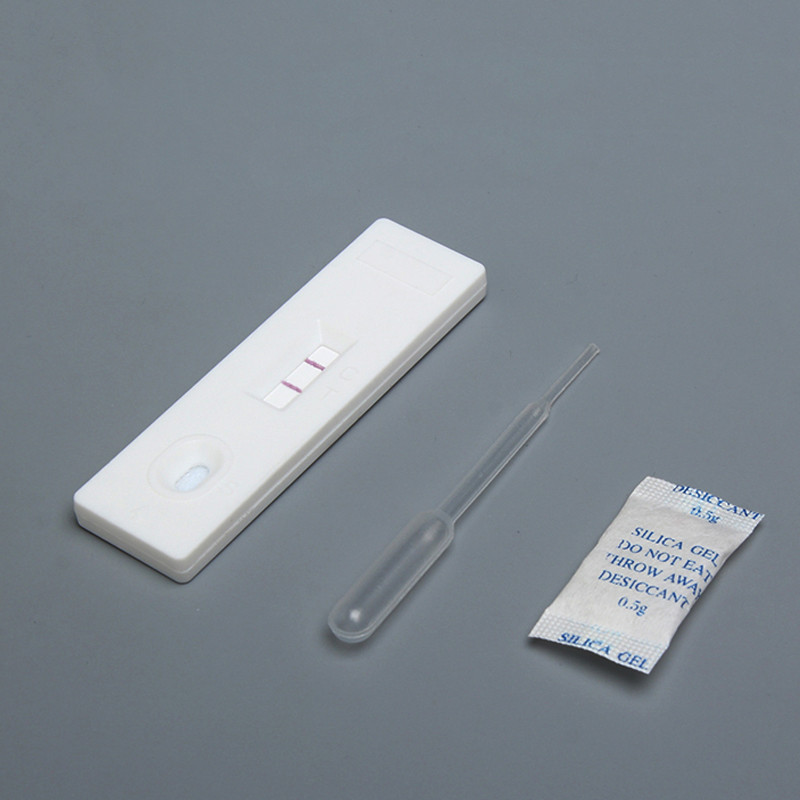Nov . 21, 2024 03:53 Back to list
wholesale syphilis blood test manufacturers
Understanding Wholesale Syphilis Blood Test Manufacturers
Syphilis is a sexually transmitted infection (STI) caused by the bacterium Treponema pallidum. Despite being treatable, syphilis has seen a resurgence in various parts of the world, emphasizing the importance of effective screening and testing methods. Blood tests for syphilis are crucial for diagnosis, treatment, and surveillance of the infection. As the demand for these tests increases, wholesale syphilis blood test manufacturers play a pivotal role in ensuring their availability and accessibility.
Importance of Syphilis Testing
Testing for syphilis is essential for several reasons. Firstly, early diagnosis can significantly reduce the risk of transmission and complications associated with untreated syphilis, which can lead to serious health issues, including neurological problems and cardiovascular disease. Regular screening is especially important for high-risk populations, such as individuals with multiple sexual partners or those living with HIV.
Moreover, during pregnancy, syphilis testing becomes even more critical, as it can have severe consequences for both the mother and the unborn child. Congenital syphilis can lead to stillbirth, low birth weight, and severe infections in newborns. Thus, timely testing and treatment are essential in reducing the rates of congenital syphilis.
Role of Wholesale Manufacturers
Wholesale manufacturers of syphilis blood tests provide various products to healthcare systems, clinics, and hospitals. These manufacturers specialize in producing high-quality diagnostic kits that can accurately detect syphilis antibodies, either through traditional venous blood tests or rapid point-of-care tests. The growth of wholesale manufacturers is driven by the increasing demand for reliable and efficient testing methods that can be deployed in various healthcare settings.
Wholesale manufacturers not only produce tests but also invest in research and development to enhance their accuracy and reliability. Innovations in diagnostic technologies, such as the development of new antigen-antibody detection methods, have substantially improved the speed and effectiveness of syphilis testing.
wholesale syphilis blood test manufacturers

Quality and Compliance
With the critical health implications associated with syphilis testing, it is paramount that wholesale manufacturers adhere to strict quality control and regulatory standards. In many countries, these tests must be approved by health authorities, such as the Food and Drug Administration (FDA) in the United States or the European Medicines Agency (EMA) in Europe. Compliance with Good Manufacturing Practices (GMP) ensures that the tests produced are safe, reliable, and effective for clinical use.
Moreover, manufacturers often provide comprehensive training and support to healthcare providers on the appropriate use of their testing kits. This education is crucial to maximizing the tests' effectiveness and ensuring that healthcare professionals can interpret the results accurately.
Global Market Dynamics
The global market for syphilis testing is influenced by various factors. Increasing awareness around sexually transmitted infections, campaigns promoting safer sexual practices, and healthcare initiatives improving access to testing are all contributing to the market's growth. Additionally, the COVID-19 pandemic highlighted the importance of integrated healthcare solutions that include routine STI testing, further propelling demand.
In regions with limited resources, the affordability and availability of wholesale tests can significantly impact public health strategies. Manufacturers that focus on cost-effective solutions can improve access to testing, particularly in low-income areas where healthcare resources may be scarce.
Conclusion
Wholesale syphilis blood test manufacturers play a critical role in the global health landscape. By ensuring the availability of high-quality diagnostic tests, they contribute to the early detection and treatment of syphilis, ultimately reducing transmission rates and improving health outcomes. As global health initiatives continue to prioritize STIs, the role of these manufacturers will only become more vital in combating the resurgence of syphilis and protecting public health at large.
-
Dengue NS1 Rapid Diagnostic Test Kit
NewsMar.07,2025
-
Dengue NS1 Rapid Diagnostic Test Kit
NewsMar.07,2025
-
Dengue NS1 Rapid Diagnostic Test Kit
NewsMar.07,2025
-
Transferrin Rapid Test Cassette Tumor Marker TF Card
NewsMar.07,2025
-
Malaria Pf Pan Rapid Diagnostic Test Kit
NewsMar.07,2025
-
malaria pf / pan ag rapid test
NewsMar.07,2025

